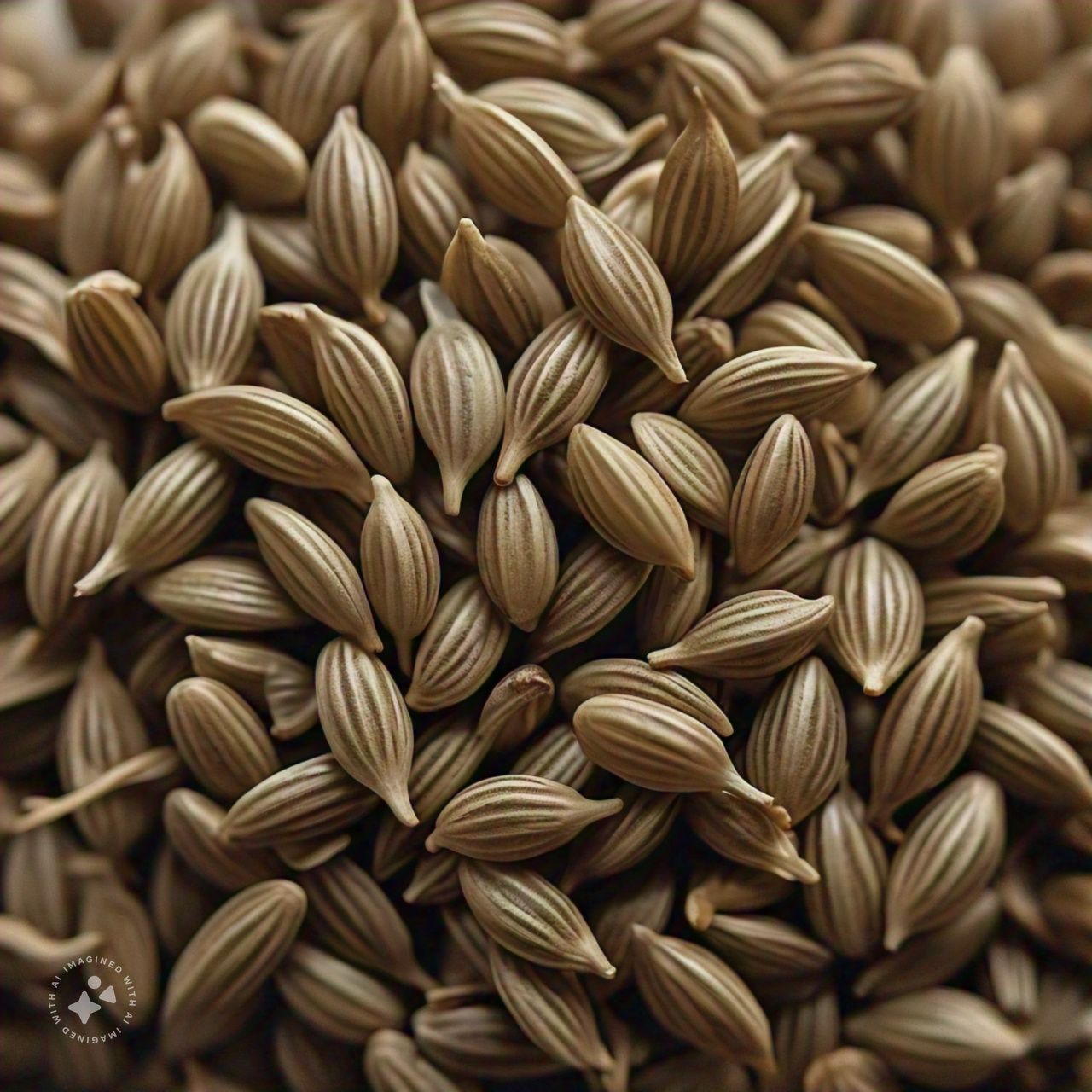Dill seeds, harvested from the Anethum graveolens plant, are aromatic seeds widely used in cooking and traditional medicine. Known for their distinct flavor and numerous health benefits, they are an essential ingredient in kitchens and apothecaries worldwide.
Nutritional Value and Health Benefits
Why Dill Seeds Are a Nutritional Powerhouse
Dill seeds are rich in:
-
Essential Oils: Known for their antibacterial and antifungal properties.
-
Minerals: High levels of calcium, magnesium, and potassium.
-
Antioxidants: Help combat oxidative stress and boost immunity.
-
Dietary Fiber: Promotes digestive health and regularity.
Key Health Benefits
-
Supports Digestive Health: Relieves bloating, gas, and indigestion.
-
Promotes Bone Health: High calcium content strengthens bones and prevents osteoporosis.
-
Regulates Blood Sugar: Helps manage diabetes and stabilizes glucose levels.
-
Boosts Immunity: Antioxidants and essential oils enhance the body's defense against illnesses.
-
Anti-inflammatory Properties: Reduces joint pain and swelling.
Culinary Uses of Dill Seeds
How to Use Dill Seeds in Cooking
-
Seasoning: Add to pickles, sauces, and marinades for a tangy flavor.
-
Baking: Use in breads and crackers for a unique twist.
-
Tea: Brew with hot water for a soothing digestive aid.
-
Spice Blends: Incorporate into curry powders and spice rubs.
Cooking Tips
-
Toast dill seeds lightly to release their full flavor.
-
Grind them into a powder for an even distribution in recipes.
-
Pair with ingredients like garlic, lemon, and yogurt for refreshing dishes.
Sustainability and Food Waste Impact
The Role of Dill Seeds in Sustainable Practices
-
Low Resource Requirement: Dill plants are easy to grow and require minimal water.
-
Long Shelf Life: Properly stored dill seeds can last up to two years, reducing food waste.
-
Multiple Uses: Leaves, seeds, and stems can all be utilized, ensuring zero waste.
Tips to Reduce Food Waste
-
Store dill seeds in an airtight container away from sunlight.
-
Reuse dill seed tea residue as compost for plants.
-
Incorporate leftover seeds into homemade spice mixes.
Seasonal Favorites and Holiday Recipes
Cooking With Dill Seeds Year-Round
-
Summer Coolers: Add to yogurt dips and refreshing salads.
-
Winter Warmers: Use in hearty soups and roasted vegetable dishes.
-
Holiday Favorites: Perfect for pickling and seasoning holiday meats.
Comparisons: Dill Seeds vs. Fennel Seeds
| Feature | Dill Seeds | Fennel Seeds |
|---|---|---|
| Flavor Profile | Tangy, slightly bitter | Sweet, licorice-like |
| Nutritional Content | Rich in calcium and antioxidants | High in fiber and vitamin C |
| Culinary Use | Pickling, teas, and curries | Baking, spice blends, and beverages |
| Shelf Life | Long with proper storage | Long with proper storage |
Frequently Asked Questions
What Do Dill Seeds Taste Like?
Dill seeds have a tangy, slightly bitter flavor with hints of citrus and anise.
How Do I Store Dill Seeds?
Store in a cool, dry place in an airtight container to maintain freshness for up to two years.
Are Dill Seeds Good for Weight Loss?
Yes, their high fiber content helps keep you feeling full longer, aiding in weight management.
Call to Action: Discover the Versatility of Dill Seeds!
Upgrade your cooking and health regimen with premium-quality dill seeds. Shop from trusted sources and experience their unique flavor and health benefits.





Share:
The Ultimate Guide to Black Cumin: Benefits, Uses, and Sustainability
The Ultimate Guide to Dried Coconut Halves: Uses, Benefits, and Sustainability